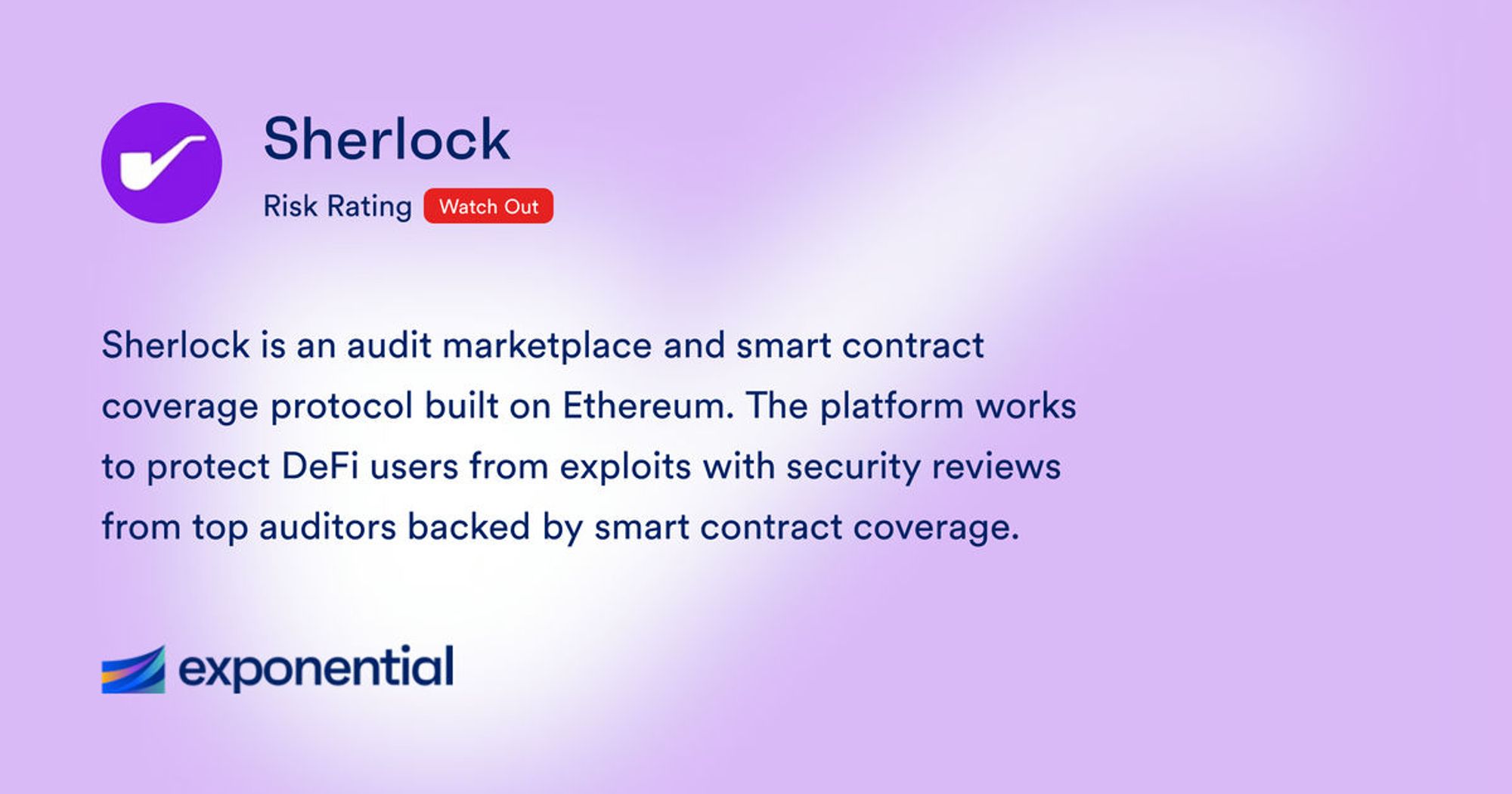Hey Edge readers,
This week, we're exploring decentralized insurance platforms, how they offer DeFi users protection from exploits, and how you can become an insurance provider to earn yield.
Here's what we're covering this week:
- DeFi insurance unpacked 🛡️
Learn how insurance works in a decentralized ecosystem.
- Spotlight on Sherlock 🕵️♂️
Explore the mechanics behind the USDC insurance pool.
- Ethena launches stablecoin with 27% APY
Layer 1s surging, lending risks and more.
Stay sharp. 🫡
– The Exponential team

How DeFi insurance works
Learn about insurance in DeFi, including how it works, the associated risks and advantages, and the top insurance platforms in the space.
exponential.fi/blog/how-defi-insurance-works


Is Sherlock the solution to decentralized insurance?
Sherlock stands out in the DeFi landscape as an audit marketplace and smart contract insurance protocol on the Ethereum blockchain. It offers a dual safeguard to DeFi users by coupling security audits from top-tier auditors with actual insurance coverage for the smart contracts under scrutiny. This two-pronged approach is in contrast with traditional audit firms that primarily depend on their reputation to win business, an approach that may not optimally align incentives.
Sherlock is unique in that it offers protocols actual financial guarantees in the form of USDC. If a Sherlock-audited and insured contract were to get exploited, the protocol's USDC-denominated insurance pool will be used to pay out or reimburse for part of that loss.
Understanding the insurance pool
In Sherlock's platform, stakers play the role of traditional insurers. By depositing USDC into the insurance pool for predetermined periods—either half a year or a full year—you become an insurance provider for those protocols. In return for undertaking that risk, you earn a yield, generated from insurance premiums paid by customer protocols and bonus incentives distributed in Sherlock's governance token, SHER.
Choosing between the 6-month and 12-month staking options depends on one's outlook on the future trajectory of incentives. If you anticipate a decrease in incentives, locking in for a year to secure a higher rate of SHER tokens could be advantageous. However, this also exposes you to potentially more insurance payouts. Once the lock-up term is up, stakers can opt to either withdraw their stake or reinvest it back into the pool.
There are three stages of the payout process:
1. The initial exploit event
2. When the claim gets submitted
3. When the claim gets paid out
Liability for payouts remains solely with those whose stake remains locked during the payout phase. If you withdraw before claims are paid out, then you are exempt. Further, Sherlock ensures that each protocol's policy is capped at a maximum of 50%, mitigating the risk of any single protocol's exploit disproportionately impacting the insurance pool.
Is it worth the risk?
In reality, it remains to be seen if this is a sustainable solution for decentralized insurance offerings. Users who have staked in Sherlock have generally been burned as customer protocols are not paying nearly enough premiums to compensate depositors for the associated risks.
As a result, Sherlock has seen its USDC reserves fallen substantially as it has had to payout claims for several exploits (e.g. Euler). This puts more pressure on Sherlock to attract more depositors and even led to poor decisions like putting user-deposited funds into lending protocols to generate additional yield. To continue forward, Sherlock will have to increase its premiums to a point where it makes more economic sense for users.
If you’re interested in learning more, check out our protocol report below. 👇
Sherlock (Insurance)
Sherlock is an audit marketplace and smart contract coverage protocol built on Ethereum
exponential.fi/protocols/5d65fe89-22ce-4d95-ba80-1bec0ae05fbb


What type of pools would you like to invest in through Exponential?
Subscribe to participate in polls.

In the news
- Pantera analysts see a half-trillion dollar opportunity in bringing DeFi to Bitcoin - Read
- Hack VC raises $150 million to invest in early-stage crypto and AI startups - Read
- Wormhole lands partnership with AMD to realize its zero-knowledge roadmap - Read
- Avalanche activity is heating up driven by memecoins, GameFi, and real-world assets - Read
- Solana’s DeFi TVL tops $2 billion for first time since June 2022 - Read
- Ethena’s new stablecoin offering 27% APY by shorting ETH already attracts over $300 million in TVL - Read
